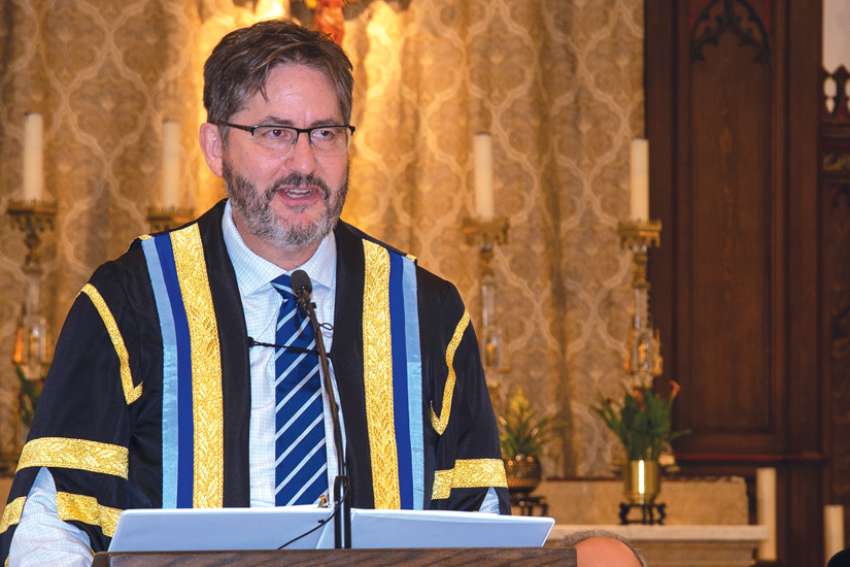“We’re seeing a flourishing of our departments again. We’re enjoying the benefits of having these full-time faculty in the college again,” Sylvester said.
Over the last five years, St. Michael’s College has added 10 new faculty members, built out its undergraduate programs in mediaeval studies, book and media studies, Celtic studies and Christianity and culture. In its graduate faculty of theology, there’s a new professor of practical theology, a new head of the Elliott Allen Institute for Theology and Ecology, a new patristics professor working in the Sheptytsky Institute of Eastern Christian Studies, and a new lead on religious education working with school boards. In total, Sylvester calculates it’s a 35 per cent increase in St. Michael’s teaching and research capacity.
But the biggest transformation for Catholic theological studies in Canada is ongoing integration of faculties at the Jesuits’ Regis College and St. Michael’s.
So as St. Michael’s ticks over 170 years of Catholic higher education in Toronto this year, Canada’s largest Catholic university, embedded in Canada’s largest research university, has a lot to offer, Sylvester said.
“We know where we want to go and we have the horses to pull in that direction,” he said.
The strength of the university isn’t just the added professors, or even finding new ways for the faculty to work together. It’s really all about the capacity of the university to respond to the changing world, Sylvester said.
The expanding book and media studies program is one example.
“We have a very strong book and media studies program that comes in a (Marshall) McLuhan background,” Sylvester said, referring to the St. Michael’s College English professor who wrote The Gutenberg Galaxy and coined the phrase “global village.”
“But now more than ever, shouldn’t we also be attending to media literacy? Boy, do we need that as a society.”
The whole university — both graduate and undergraduate studies — is finding creative ways to respond to the crisis of reconciliation with Indigenous people with new courses, research projects and conferences.
Theologians of all stripes are finding meaningful ways to talk about God and creation on a warming planet. And in terms of how the university itself functions, synodality is at the heart of it, according to Sylvester.
“When we talk about synod, about listening to everybody and discerning and figuring out a path forward, it’s not a stretch for us. We call it collegiality, of course,” he said.
The new era begins with two new hires expected to be in place at the official start of St. Mike’s academic year, July 1. On its own, St. Michael’s will hire a new principal. Jointly with Regis College, there will be a single new dean of theology for the new integrated faculty of theology.
The new theology dean will take on a major challenge. “They’re going to build something new out of these really strong, unique institutions,” Sylvester said. “But the goal is that they’re working side-by-side in a complementary way.”
The Catholicity of undergraduate experience lies in the hands of the new principal. “The principal isn’t just managing faculty,” Sylvester said. “He’s actually building a community.”


